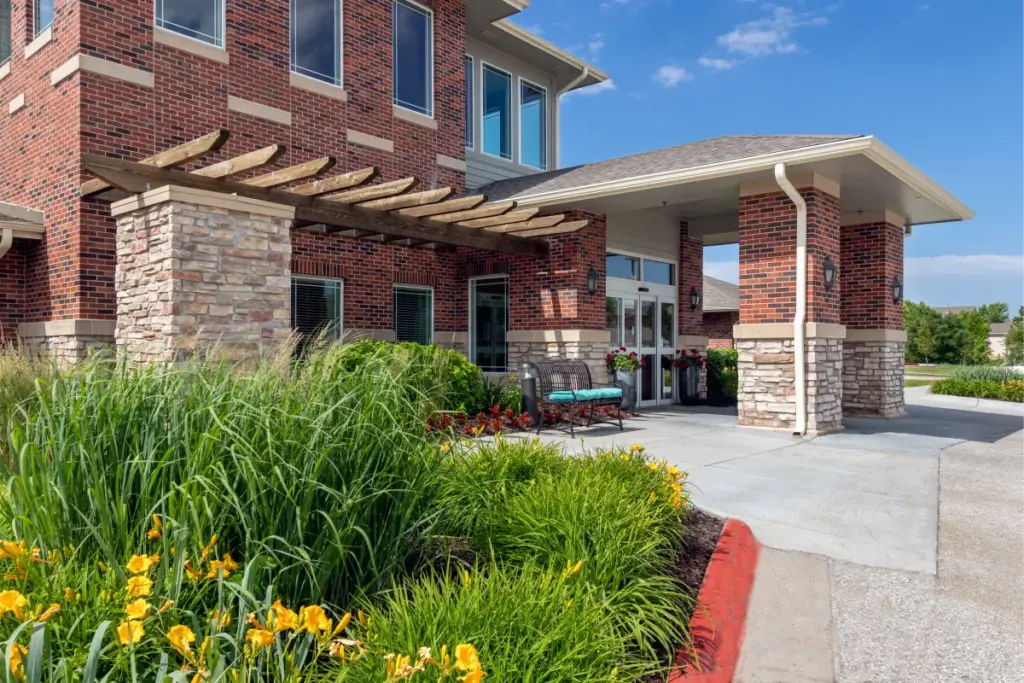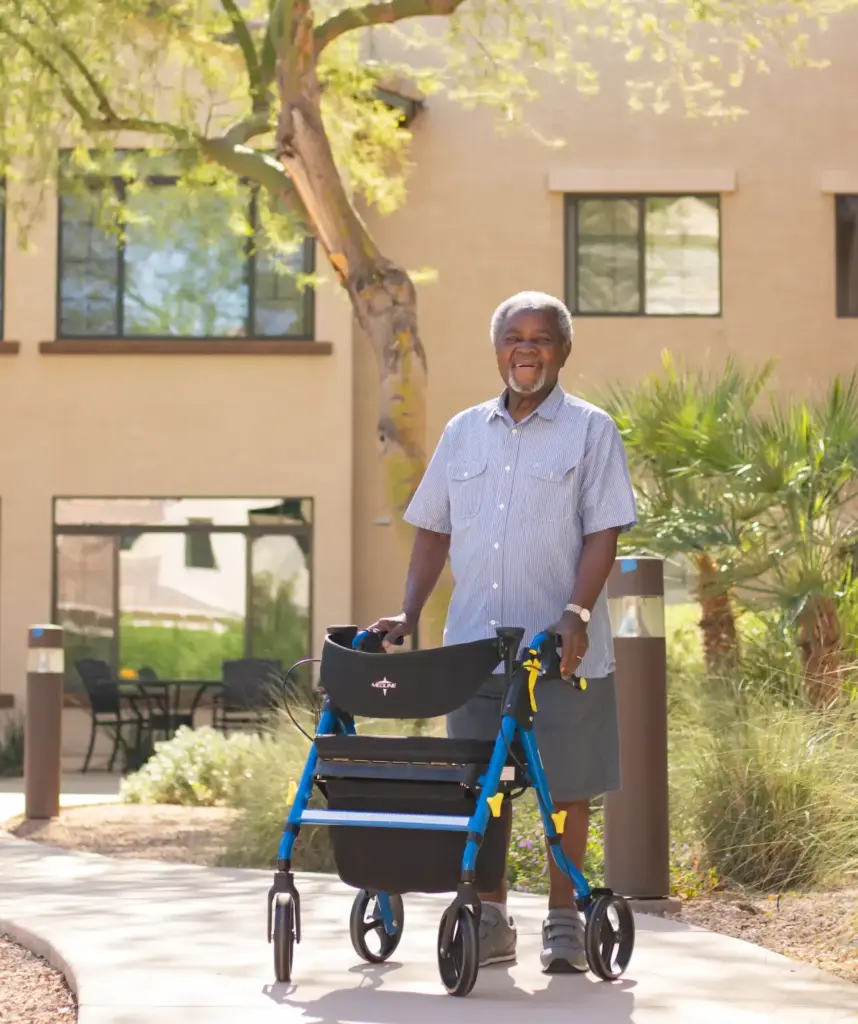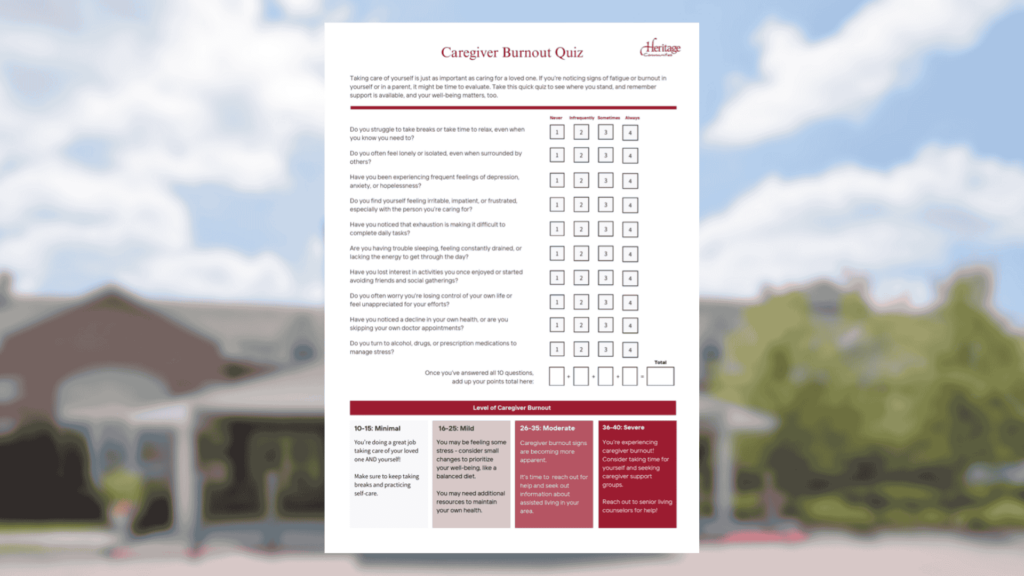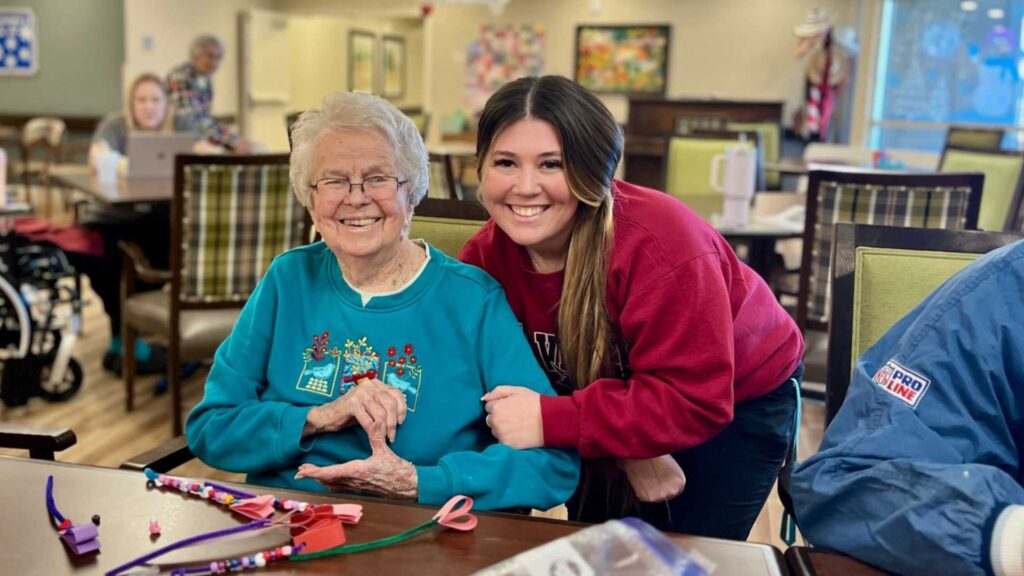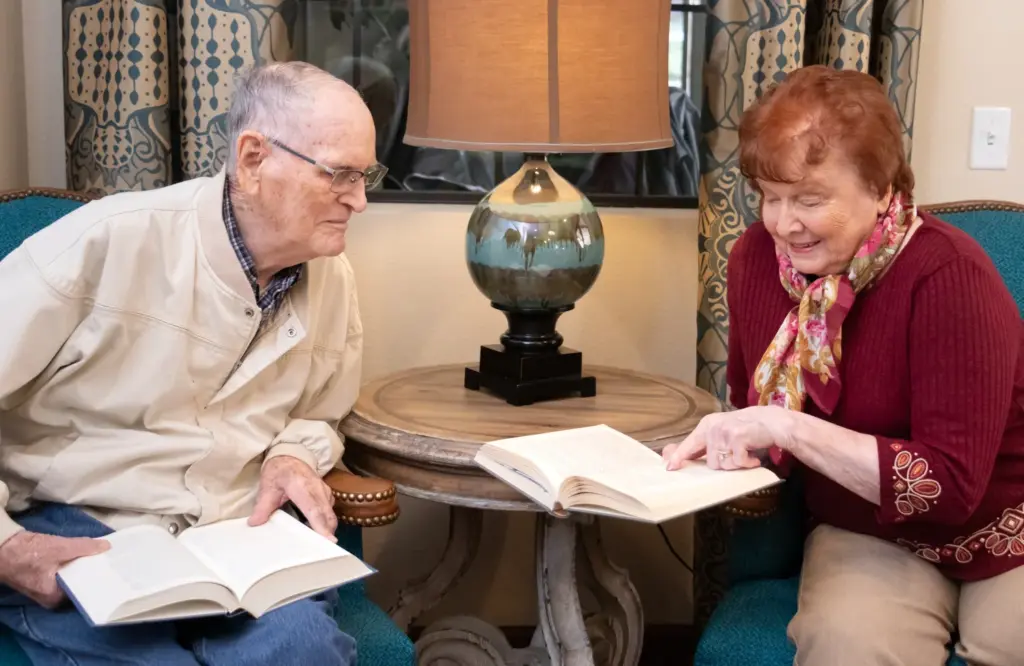Memory Care Questions: How to Answer a Loved One with Dementia
Questions from a loved one with dementia or Alzheimer’s can be difficult, especially when they ask questions that have painful answers. At Heritage Communities, we understand, and we have some suggestions to help you and your family communicate with your loved one with understanding, patience, and compassion. Memory Care Questions: Keeping the Goal in Mind...
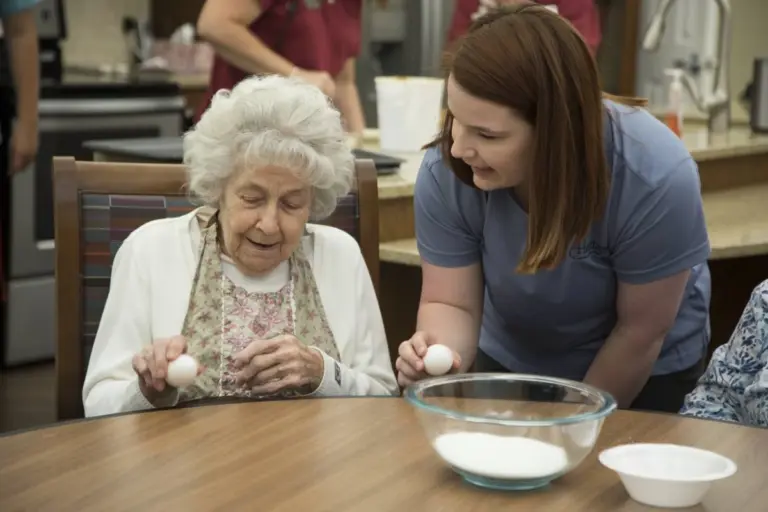
Questions from a loved one with dementia or Alzheimer’s can be difficult, especially when they ask questions that have painful answers. At Heritage Communities, we understand, and we have some suggestions to help you and your family communicate with your loved one with understanding, patience, and compassion.
Memory Care Questions: Keeping the Goal in Mind
Helen Crunk, Regional Healthcare Specialist of Heritage Communities, and an expert in memory care, says she understands how not being totally truthful with a parent in memory care might feel like you’re doing something wrong. “But consider that the truth could cause them additional pain, such as reminding them someone has died,” she says. “And your loved one is likely to forget what you have told them, and will ask again…why keep reminding them of a painful memory?”
Instead, Crunk says the goal is always to soothe, not to add agitation or anxiety. Don’t try to use logic. Respond in a way that comforts and calms. For example:
Validate:
Nod, put your hand on their arm, offer a hug, be agreeable, do not argue. Meeting them where they are helps preserve their dignity.
Redirect:
Mention a favorable hobby, activity, or event. Ask about a favorite childhood memory they still talk about. Suggest an alternative activity before the one they mentioned (such as brushing their hair before “catching a bus”).
Distract:
Show them an old photo, engage them in singing a favorite song, take them for a walk to an outdoor garden or a group activity.
Common questions asked by memory care residents and some possible answers
“I need to catch the school bus, or my mother will be angry.”
There is no value in reminding her that she is 80+ years old and her mother is deceased. That level of truth will only lead to more anxiety and confusion.
Crunk suggests you respond with something like, “Mom called me and asked me to take you home instead. But before we go, let’s have a snack, and maybe finish the puzzle we started.” Occupying your loved one like this redirects her attention and takes you to the next moment. “It’s likely she will forget once she is busy with another task.”
“I want to go home now. Can you take me?”
Instead of saying that your mother is already home, try something like “Tell me about where you live. What’s your favorite room?” By asking about her home, you are validating her feelings, and encouraging her to share her thoughts.
Or, you could say, “Okay, we’ll do that right after we have breakfast. Let’s get you a sweater so you won’t get cold.” Then the conversation can move towards her favorite sweater, or on the way to the dining area, you could look out a window and comment on the birds, or maybe speak to a staff member.
Helen Crunk says that often there’s another message behind the words. “Sometimes when a person says they want to go home, they are trying to communicate that they are afraid, anxious, or need some reassurance,” she says. “Respond in a soothing voice and if your loved one likes to be touched, try a gentle hug or hold their hand. They might just need to know they are being heard.”
“I want to talk to my son/daughter/husband/wife.”
You might say, “Okay, but right now, they’re probably at work or taking a nap. We’ll call them later, but first, could you help me fold your sweaters?” Or, “Could we walk over to the living room? I’d like to see what’s going on there.”
“Why don’t you ever visit me?”
This can be especially hard, says Crunk, especially when you’ve been visiting quite regularly. “Keep in mind, your mom or dad simply cannot hold on to short-term memories. Instead of reminding them how many times you’ve visited, just jump right in with something pleasant.” Her suggestion: “Hey, let’s go down the hall to the singalong.” Or comment on an old photo. “You look like you really enjoyed dancing when you were young. Tell me about that.”
Memory Care Questions: Choose Personalized Care for Your Loved One
At Heritage, we call our memory care program “Portraits®, featuring multisensory activities based on the philosophies of Dr. Maria Montessori. Our care team creates an individualized plan for each resident, describing goals, opportunities and personalized activities that we believe each person will enjoy.
We get to know your loved one, and we get to know you and your family as much as possible. This enables our caregivers to interact on a deeper, more personalized level. The result is less frustration and more engagement. We also offer extensive support for our families—listening, encouraging and providing information.
Our Memory Care allows residents to discover more joy in each day. Download our free Family Decision Toolkit, Your A–Z Guide to Choosing The Right Senior Living Community. Or contact us today.



